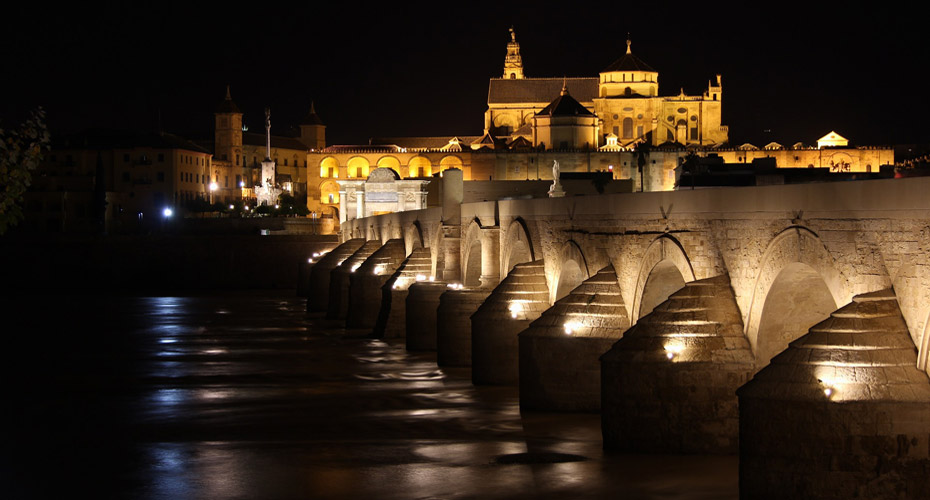Cities in conflict and sacred sites
In cities around the world conflict is rife and despite many differences, many have one thing in common that could help in their quest for peace. In a new study, Professor Mick Dumper investigates what cities with holy sites could learn from each other.
In 15 years’ time 75 per cent of the world’s population will be living in cities, cities that are becoming more culturally and religiously diverse each and every day. One reason for this is that with the decline of the great Empires of the world, such as the Ottoman and British Empires, hundreds of religious denominations were left behind in their wake each with their own unique identity and heritage. Yet it’s not the sheer number of religions that appears to be putting pressure on the cities we live in, but the presence of holy sites within them.
Professor Mick Dumper, who lectures on Middle Eastern Politics at Exeter University is leading a ground-breaking new research project to investigate ‘holy’ cities around the world to understand the effect religious sites have on conflict.
A holy site is a place that a religion considers to be of special religious significance and is usually somewhere visited by pilgrims. Tensions can arise however, when more than one religion lays claim to the same site. Those tensions can heighten to devastating effect leading to conflict, and in worse cases all-out war.
As is often the case, it’s the most vulnerable in society that are harmed and by looking at the physical make-up of a city we can find clues as to why this might be. Holy sites do not exist independently, in fact they are often a city’s societal nucleus with the spaces around them home to schools, orphanages, seminaries, clergy buildings. The physical nature of people responding to that site creates a different kind of public space.
Funded by The Leverhulme Trust, Power, Piety and People: The Politics of Holy Cities in the 21st Century is a three-year comparative study expanding on earlier work carried out by Professor Dumper. After spending several spells in Palestine and Israel working as both an activist and aid worker, Professor Dumper’s academic career has been spent exploring the possibilities of a solution to the conflict there.
With this project, his fieldwork is now taking him to India, Spain, Malaysia, Tibet as well as back to Palestine and Israel in order to draw comparisons and learnings from cities around the world that share this unique characteristic and in consequence, complex challenge. His on-going consultancy work with the UN advising on conflict management has enabled him to approach this project with a unique perspective. Not only does Professor Dumper bring with him a wealth of knowledge and expertise, but his books, articles, reports and fieldwork is backed by tangible real-world examples of how governments, practitioners and clergy alike are managing conflicts as they unfold.
You need only look at Dumper’s early life to understand how he came to work in this area. The son of an Anglican clergyman, he was raised in Malaysia and Singapore. As a child he recalls seeing saffron and burgundy robed Thai and Sri Lankan monks smiling and waving from the two Buddhist monasteries that stood outside his back gate. To the front of the house passed the long Hindu Deepavali and Thaipusam night processions and his family’s domestic and church staff comprised Muslim Malays, Christian and Hindu Tamils and Confucian Chinese. Comparative religion was his daily life and unsurprisingly Professor Dumper’s first degree was in Religious Studies.
Through his work, he now inspires a new generation of students who he says are motivated by projects like this one. Professor Dumper explained: “They respond to somebody who’s been out there and got their hands dirty, has a story to tell. My address book is more important than almost anything I have and one student has even used some of my contacts to explore an area of my work and take it even further than I was able to.” Aside from inspiring students, Professor Dumper aims to develop practical policy advice that can enable the international community manage conflict better.
The study, which will be completed towards the end of next year, soon enters, arguably, it’s most exciting phase. Academics who work in the field of religious conflicts in cities and practitioners (eg. members of the armed forces, archaeologists, clergy) will come together in a five-day ‘hot house’ workshop to explore the multifaceted approaches to managing religious conflict in cities.
Professor Dumper has enlisted the help of top gaming and simulations specialist, Professor Rex Brynen, who is a member of the Policy Staff of the Canadian Department of Foreign Affairs, to develop a tailor-made gaming exercise that will bring to life a religious conflict. This pioneering approach aims to break down the formal barriers and challenge workshop attendees to explore potential solutions.


